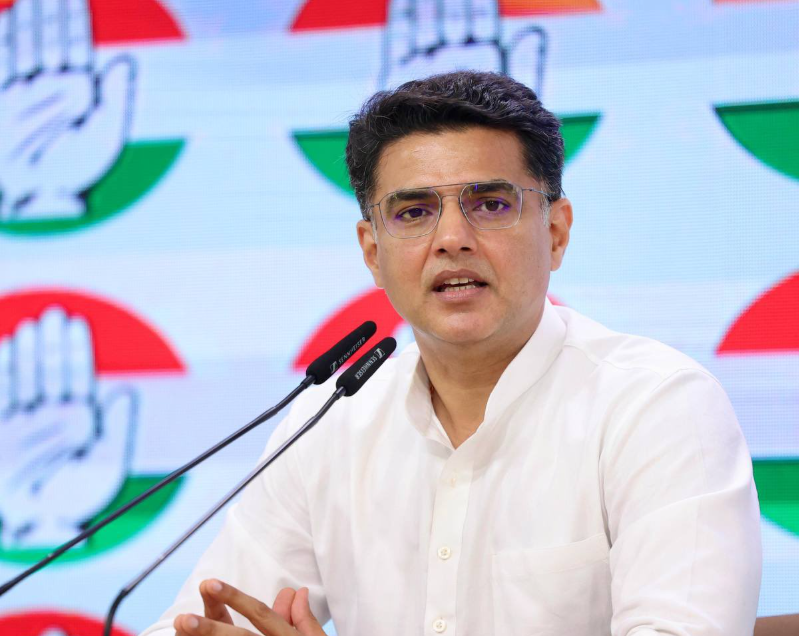
In a strongly worded statement, senior Congress leader Sachin Pilot expressed deep concern and surprise over the recent ceasefire announcement made by the President of the United States, especially in the wake of the Pahalgam terror attack, which he described as “an attack on the soul of India.”
Pilot criticized the manner in which the ceasefire was announced, highlighting that for the first time, such a major decision was conveyed via social media by the U.S. President rather than through official diplomatic channels. He stressed that the internationalization of the India-Pakistan issue, particularly Kashmir, was deeply troubling and sets a dangerous precedent.
U.S. Mediation: A Question of Sovereignty
Referring to the U.S. President's statement calling the Kashmir issue "thousands of years old," Pilot asserted that the comment was historically incorrect and ignored the fact that just 76 years ago, India and Pakistan were a single nation, and there was no such bilateral conflict over Kashmir.
He questioned the legitimacy of the U.S.-brokered ceasefire, asking:
Did the Indian government officially agree to this mediation?
On what conditions was this ceasefire declared?
Why was the Kashmir issue referenced in the U.S. statement?
Pilot strongly emphasized that India has never accepted third-party involvement in Kashmir, and any such move directly undermines India's long-standing foreign policy.
Parliament Resolution & National Unity
Sachin Pilot urged the government to recall and re-adopt the unanimous 1994 Parliament resolution, which declared Pakistan-occupied Kashmir (PoK) as an integral part of India and committed to its return. He called for a special session of Parliament to reaffirm this national position and discuss the recent developments in detail.
He highlighted the unprecedented unity across party lines and ideologies in response to the Pahalgam terror attack. “140 crore Indians stood behind the government. All political parties, including the opposition, extended full support,” he stated. Pilot acknowledged the Indian Army’s swift and decisive action against terrorist camps and praised their bravery.
Ceasefire Violations Raise Doubts
Pilot pointed out that despite the ceasefire declaration, there were continuous violations by Pakistan along the border. Mortar shelling and firing were reported throughout the night, immediately after the announcement. This, he said, raises serious doubts about Pakistan's credibility and intent.
He questioned how any ceasefire could be trusted if it is violated within hours of its declaration, and asked what guarantees or assurances were in place to prevent further escalation. Pilot also noted that Pakistan's military and political structure is very different from India’s, and that makes any such agreement fragile unless backed by enforceable commitments.
Historical Context and Call to Action
Drawing parallels to past events, Pilot reminded the nation of:
The 1971 India-Pakistan War, where despite U.S. threats to deploy the Seventh Fleet to the Bay of Bengal, India, under Indira Gandhi, acted in its supreme national interest.
The attack on Indian Parliament, where despite political rivalry, leaders like Sonia Gandhi stood with then PM Atal Bihari Vajpayee, offering unconditional support.
He urged current leadership to follow that tradition of unity and convene an all-party meeting where the Prime Minister should be present, to clearly explain:
The circumstances of the ceasefire.
The terms agreed upon.
India's official stance on foreign involvement.
Pilot concluded by demanding a firm reaffirmation of India’s stated foreign policy—that Kashmir is a bilateral issue and no third-party intervention, including from the U.S., will be accepted. He criticized the shift from this clear stance and urged the government to publicly clarify its position.
News by sensexnifty.com team




